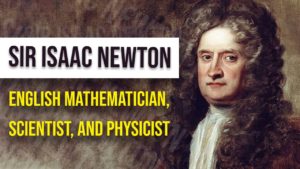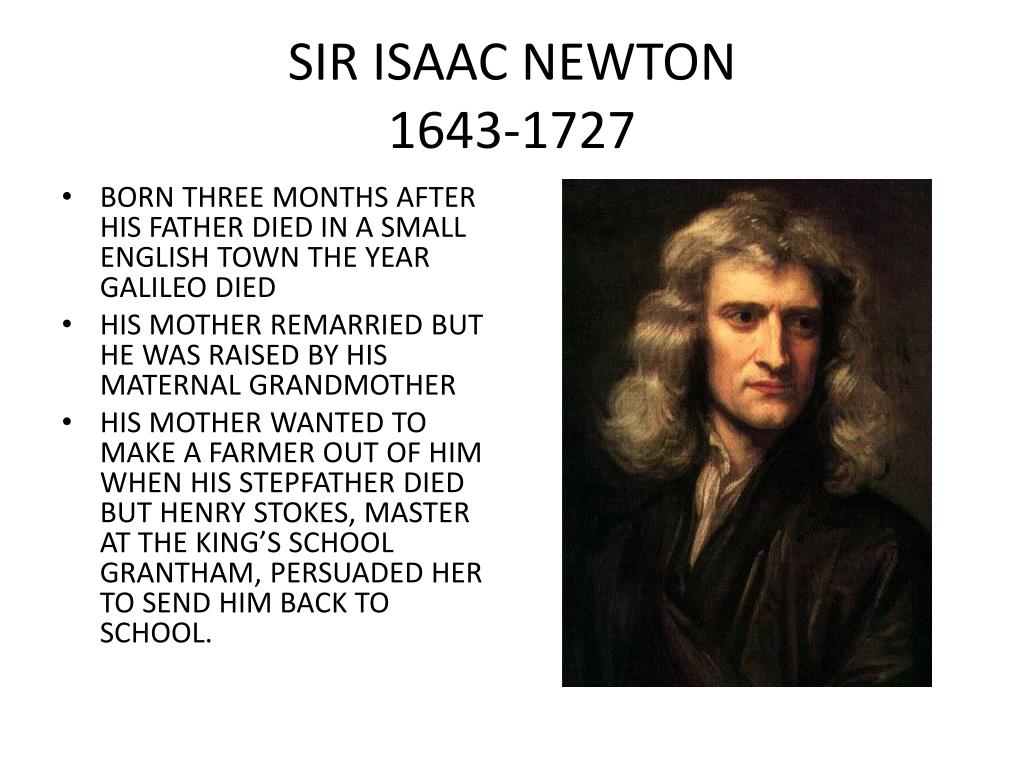



Along with Gottfried Wilhelm von Leibniz, Newton is credited with developing theories of calculus. His landmark book on physics, “Principia,” contains information on nearly all the essential concepts of physics, which helped him to outline the theory of gravity and laws of motion. He came up with the theory of the light spectrum, and that light was composed of particles. Newton made discoveries in motion, optics, mathematics, and physics. The notes outlined the new concept of nature that Newton discovered, which provided the foundation for the Scientific Revolution. It was during this period that Newton kept a set of notes, titled “Quaestiones Quaedam Philosophicae” (“Certain Philosophical Questions”). In 1661, Newton enrolled at Trinity College, Cambridge in a work-study program.Īlthough Newton was initially taught the standard curriculum, he was more interested in advanced science. Newton was miserable, as he found farming tasking, and monotonous. When he was 12, his mother withdrew him from school. Newton enrolled at the King’s School in Grantham, a town in Lincolnshire, where showed an early interest in science. He was very defensive of his published work. This experience left an indelible mark on Newton, later manifesting itself as an acute sense of insecurity and anxiety. She went to live with him and took Newton to live with his grandmother. When Newton was three, his mother remarried a successful minister, Barnabas Smith. Newton, however, defied the odds and survived. He was so frail that they thought he would not survive. Newton was the only child of a local farmer, also named Isaac, who died three months before his son was born. Isaac Newton was born on January 4, 1643, in Lincolnshire, England.


 0 kommentar(er)
0 kommentar(er)
